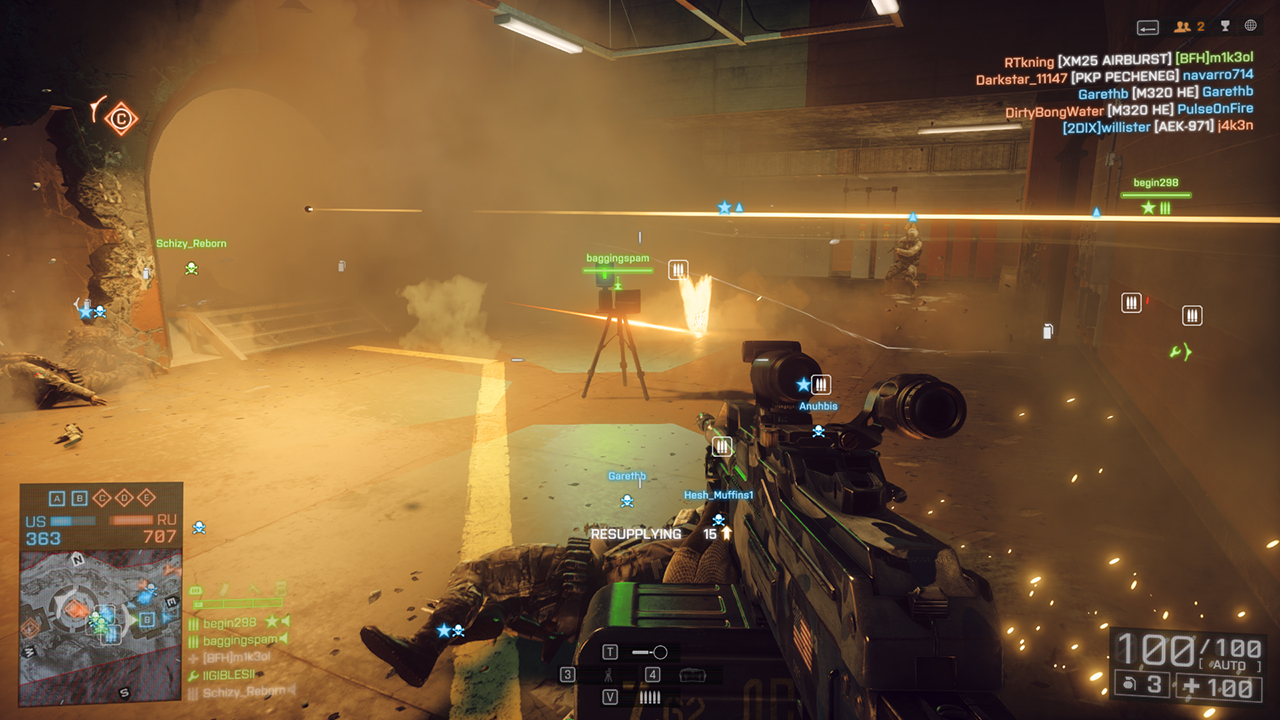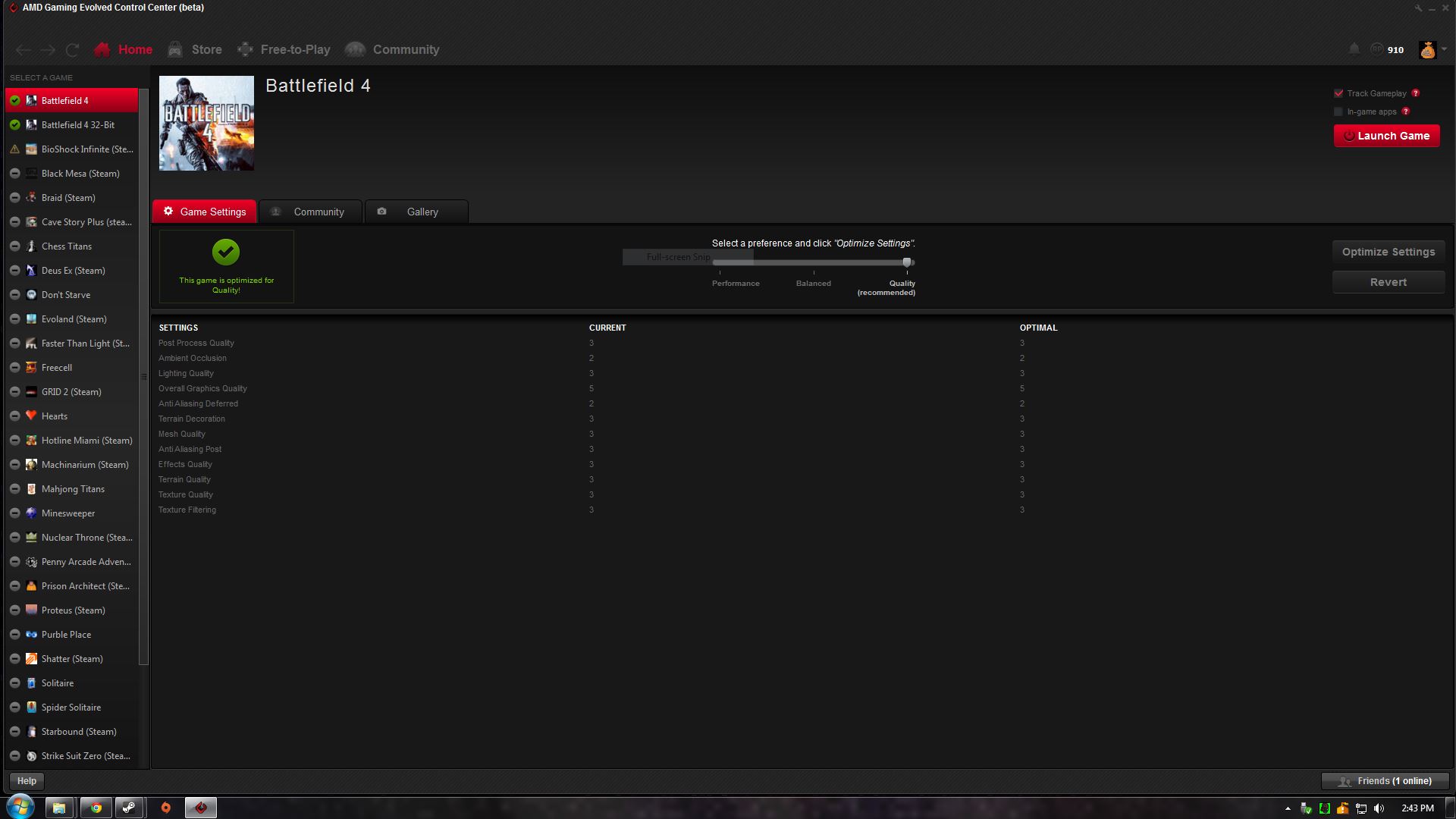In the pursuit of FPS: how AMD and Nvidia are tackling PC gaming optimization

Sign up for breaking news, reviews, opinion, top tech deals, and more.
You are now subscribed
Your newsletter sign-up was successful
Over the last few years PC gaming has become significantly more approachable to the everyday gamer, thanks to a combination of more affordable hardware and the availability of discounted digital game libraries through places like Steam and Green Man Gaming.
While the price has gone down for both PC hardware and titles, more recently Nvidia and AMD have tried to alleviate even more gamer headaches with optimization software. To this end, Nvidia opened its GeForce Experience beta to the public in January, and AMD launched its Raptr-powered Gaming Evolved application in September.
On the surface, the two applications almost seem cut from the same cloth. Both simplify the process of downloading new graphics card drivers to a one-click software update. Similarly, the software packages also set all your graphics settings following some basic guidelines that prioritize a faster frame rate or greater visual fidelity.
Continuing the similarities, the pair of apps were developed with the explicit purpose to help fine tune visual settings for less tech savvy gamers. After all, not everyone knows the difference between tessellation (the splitting of polygons) and ambient occlusion (the way light radiates and reflects) to save their overheating GPU as the FPS craters.
While the two apps are much the same in nature and purpose, that's where their commonalities end. We recently spoke with Nvidia and Raptr, the online gaming partner that powers AMD's Gaming Evolved app, to uncover how each are figuring out PC optimization and what they might have in store for the gaming masses in the future.
The numbers game
Raptr is a 7-year old game tracking service that helps users keep tabs on how long they've been playing games. Beyond clocking hours it's also an online community site that ties together users' Xbox, PlayStation Network, and PC gaming accounts for those achievement/trophy obsessed.

Raptr CEO Dennis Fong explained that although the optimization piece is new to his company's offerings, it's not actually that much further than what Raptr was already doing. The company itself tracks over 2,000 computer games with more than 20 million users. It also uses technology that can tell whether gamers were playing a single or multiplayer title, what games they've installed and what hardware makes up their rigs.
Sign up for breaking news, reviews, opinion, top tech deals, and more.
In a micro-sized version of the Raptr service, AMD's Gaming Evolved pulls crowdsourced data from a user base edging over one million.
"The way we designed the system is we actually know what types of [PC hardware] configurations people are using," Fong explained. "We know what frame rates they are actually getting and we capture all that data every single time you play."
He continued: "Every single time you play, it records a FPS histogram of your game session. We can tell if you're playing a single player or multiplayer session. When we record these FPS histograms, there's a lot of noise; as an example if you're watching a cut scene that frame rate is capped, so we sort that out."
These cleaned-up histograms are then churned into Raptr's machine learning system, which crunches all the data. The system is designed to zone in on PC gaming experts who get the optimal performance while using high-quality visual settings.
Using an example of expert users who turned off tessellation Fong explained, "what we're seeing a big boost in performance while the rest of the high quality settings are extremely high. Once our machine learns that, it then rolls that [recommendation] out to everyone else. "
"What we're trying to do is find experts," he went on. "The gamers out there that go to all the tech sites and tweak their settings. The beauty of our system is we capture all of that knowledge automatically."

Kevin Lee was a former computing reporter at TechRadar. Kevin is now the SEO Updates Editor at IGN based in New York. He handles all of the best of tech buying guides while also dipping his hand in the entertainment and games evergreen content. Kevin has over eight years of experience in the tech and games publications with previous bylines at Polygon, PC World, and more. Outside of work, Kevin is major movie buff of cult and bad films. He also regularly plays flight & space sim and racing games. IRL he's a fan of archery, axe throwing, and board games.